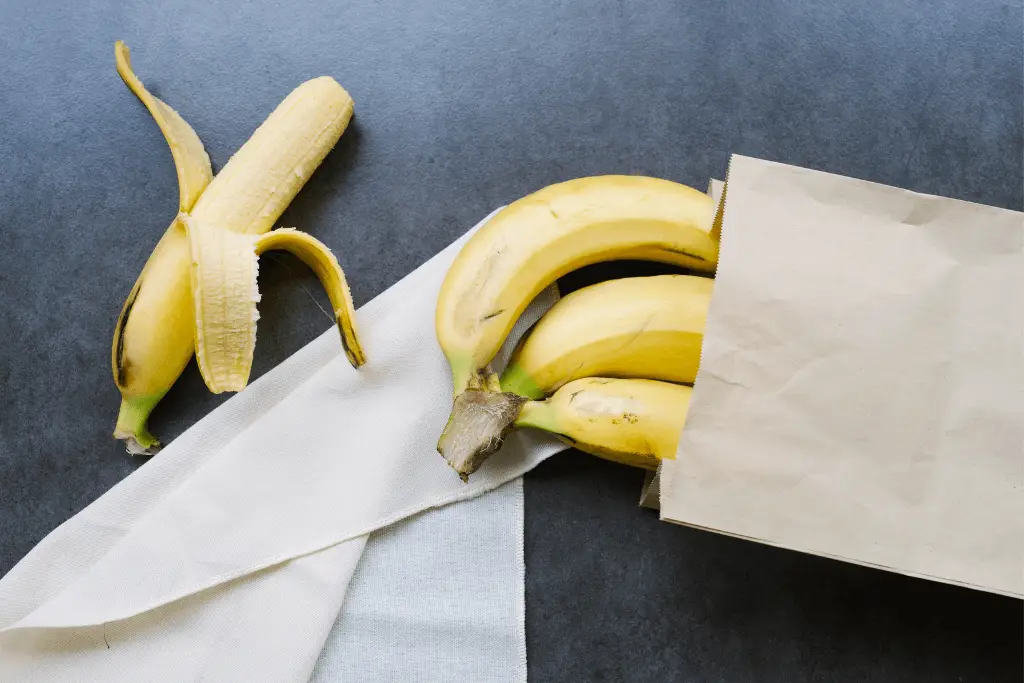No, a banana does not have lactose. Lactose is a sugar that is only in milk. Specifically, lactose is only in the milk of mammals such as goats, cows, and sheep. Since a banana does not contain mammal milk, it does not contain lactose. You are okay to eat a banana without the potential side effects of lactose.
However, if you mix dairy with bananas, you will be consuming a certain level of lactose. Here are some foods with both bananas and dairy that you should avoid if you wish to refrain from eating dairy:
- Ice Cream with Bananas
- Banana Pudding
- Banana Cake
- Banana Milk
- Banana Smoothie
- Banana Bread
- Banana Muffins
- Banana Cream Pie
- Banana Cake
- Banana Yogurt
The above list is clearly not exhaustive but it should give you an idea of the types of foods to look out for that have dairy. Of course, any of the above foods can be made with dairy alternatives such as almond milk to eliminate lactose.
Banana Side Effects
While bananas do not have lactose, they can create similar symptoms in people who have trouble digesting lactose. Here are the primary reasons why bananas might cause abdominal pains or related issues.
Starch
Unripe bananas are often cited as a culprit for abdominal pain because of their high level of resistant starch that can be challenging for the body to digest. In fact, resistant starch cannot be digested in the small intestine. Simply eating ripe bananas or cooking them often eliminates abdominal pain in people.
Fiber
Another reason that bananas may cause abdominal pain is from their fiber. According to USDA FoodData Central, a large banana has about 3.5 grams of fiber. While Americans generally consume too little fiber, a diet that is excessive in it can result in gas, bloating, cramps, nausea, and more. According to the Mayo Clinic, women should consume between 21 to 25 grams of fiber per day and men should consume 30 to 38 grams per day. If you are exceeding these amounts or aren’t used to it in your diet, fiber may be the reason you experience lactose intolerance-like symptoms when eating bananas.
Fructose
Fructose intolerance is another reason that certain people may suffer from stomach aches due to bananas. Fructose is one of the natural sugars found in fruits and vegetables. Some people have difficulty digesting fructose which can result in various gastrointestinal issues such as bloating, nausea, cramps, and diarrhea. Generally, fructose is not an issue for most people who consume bananas since the levels of it are low in this fruit. However, people who are sensitive to fructose and eat multiple bananas or other fruit a day may experience issues. Fruits that do have a higher level of fructose are dried figs, dried apricots, mangoes, grapes, raisins, pears, and watermelon.
Final Thoughts
You should not be concerned about bananas having lactose. However, in some circumstances, bananas may cause symptoms similar to those that are experienced by people that have difficulty digesting lactose. Be sure to monitor your banana intake and note how you feel if you suspect that bananas are causing digestive issues. Consider eliminating bananas from your diet if you experience problems after eating them. It is advisable for you to seek professional medical advice if your problems linger.
Sources:
Corleone, J. (2017, September 30). Why Do Bananas Give Me Stomach Cramps? Healthy Living. https://healthyliving.azcentral.com/why-do-bananas-give-me-stomach-cramps-12223242.html.
Palsdottir, H. (2016, September 25). Green Bananas: Good or Bad? Healthline. https://www.healthline.com/nutrition/green-bananas-good-or-bad#TOC_TITLE_HDR_3.

